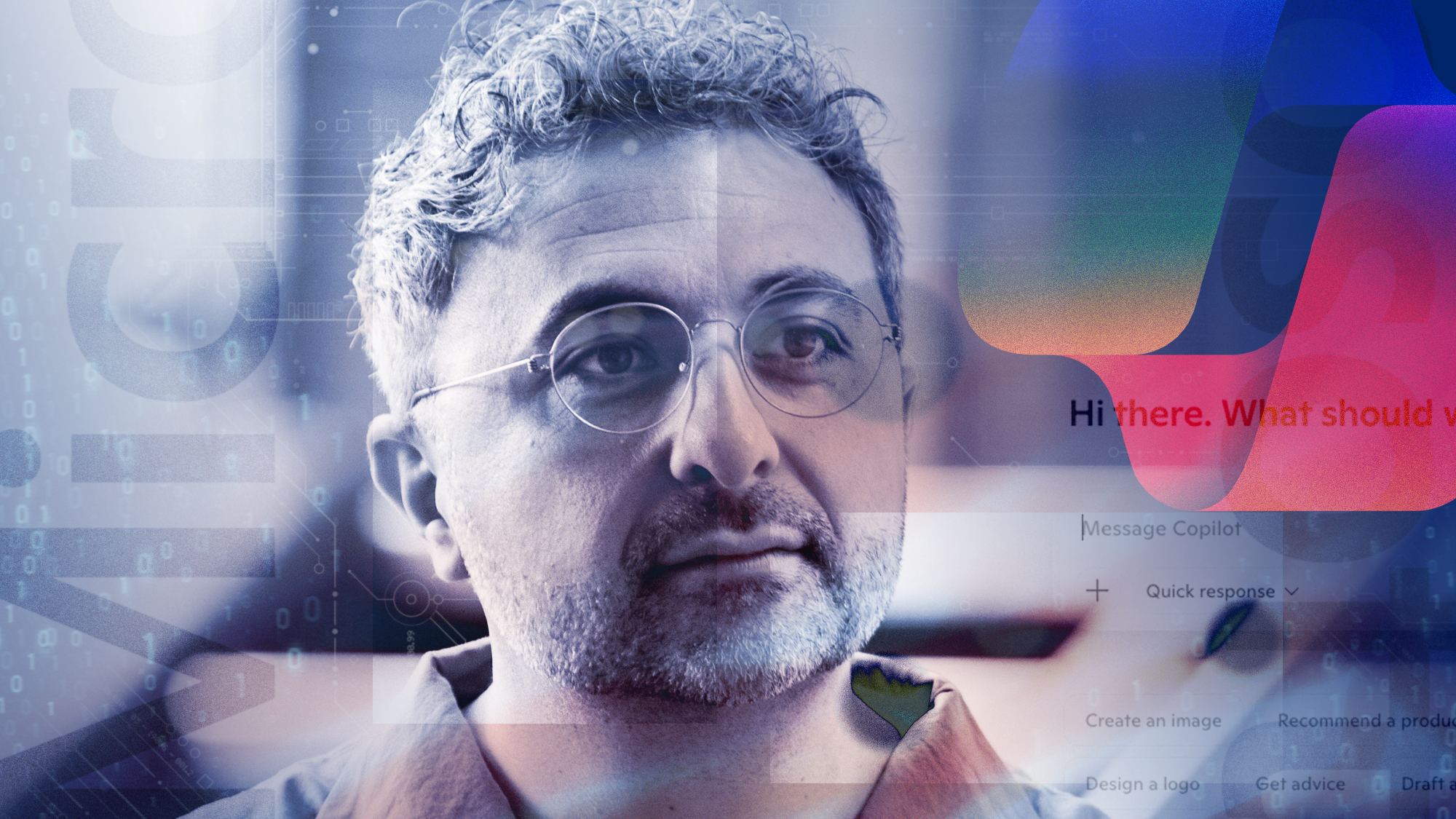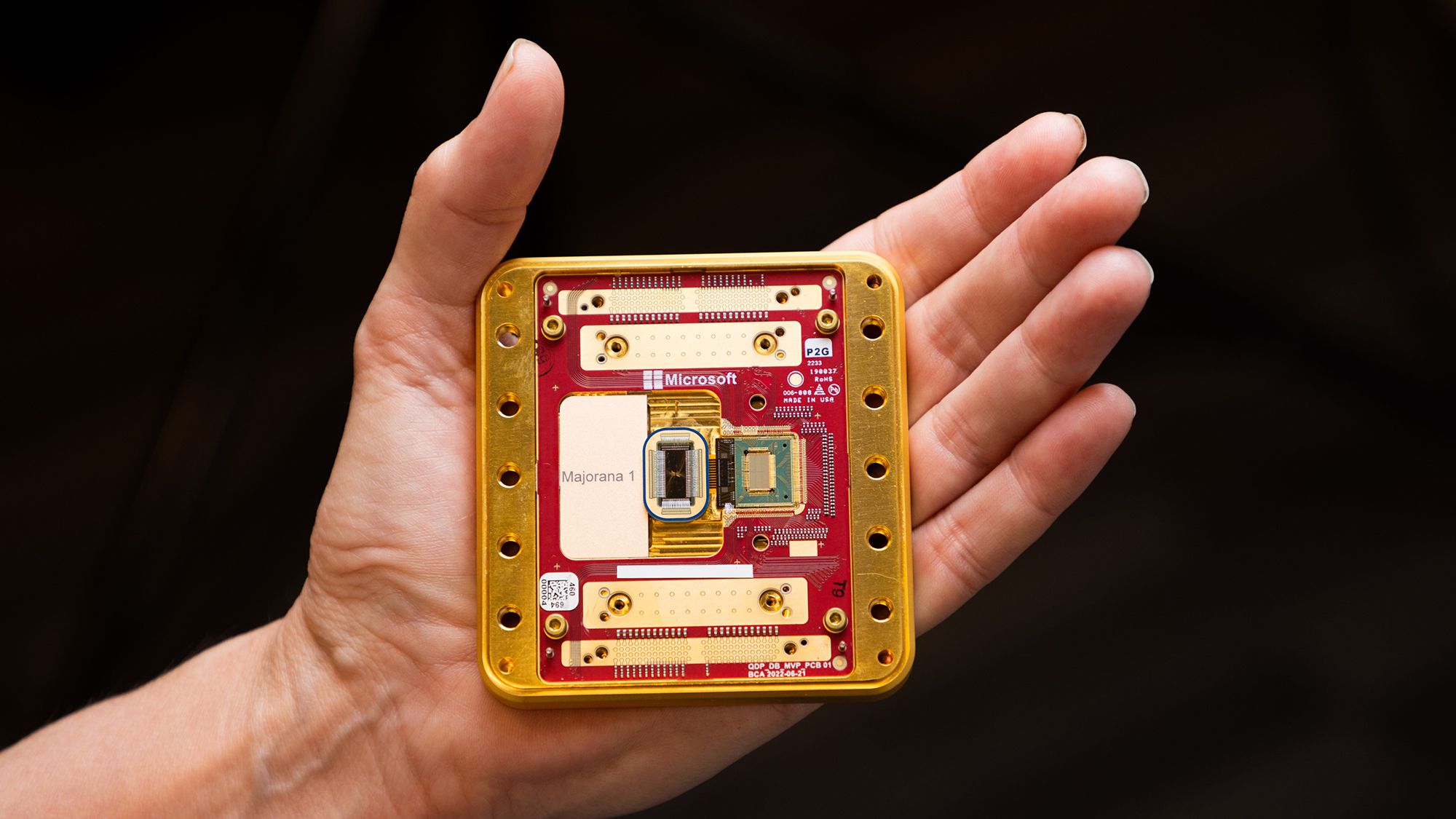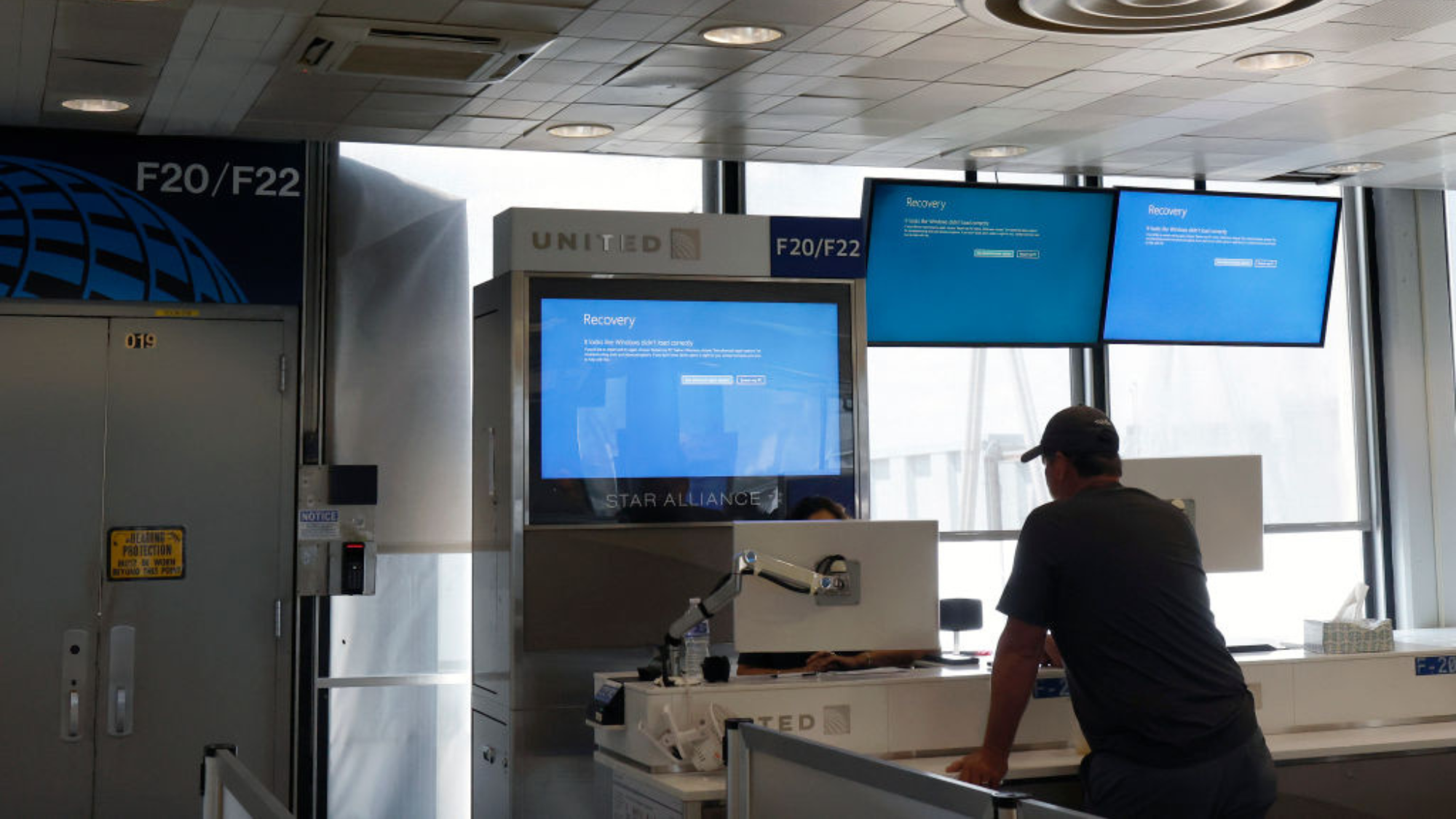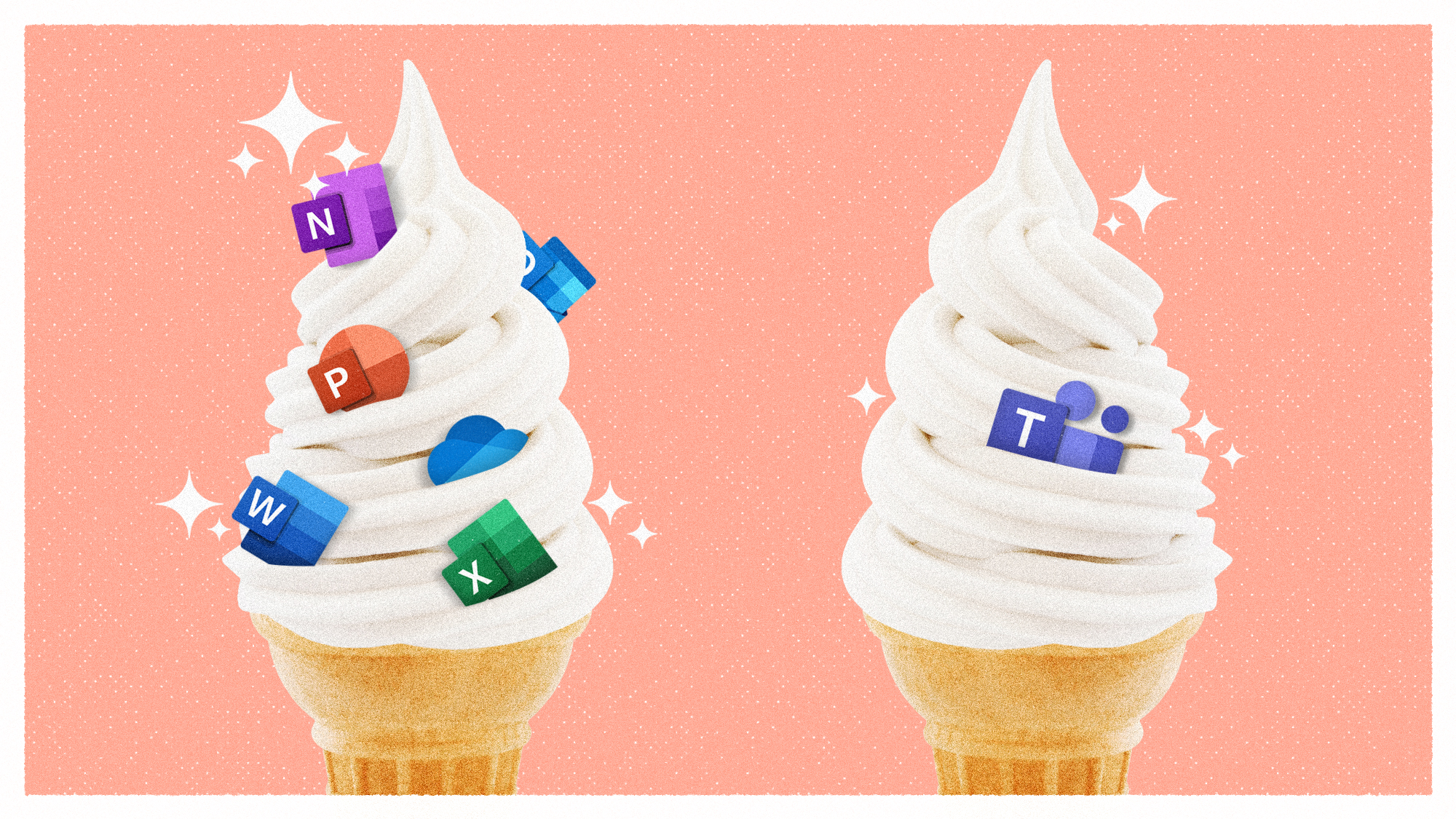Microsoft ‘Project Silica’: is glass the future of mass storage?
Tech giant teams up with Warner Bros to store Superman movie on ultra-tough silica glass panel

A free daily email with the biggest news stories of the day – and the best features from TheWeek.com
You are now subscribed
Your newsletter sign-up was successful
Microsoft has come up with an unconventional method for storing movies that could help preserve old film indefinitely.
Developed under the company’s Project Silica banner, the new medium is made of a “hard silica glass” that can endure extreme conditions without damaging the digital information stored on it, TechRadar reports.
Microsoft teamed up with entertainment giant Warner Bros to engrave a copy of the 1978 movie Superman on to a coaster-sized glass panel and retrieve it using “polarised light” and artificial intelligence (AI), Microsoft’s Jennifer Langston said in a blogpost.
The Week
Escape your echo chamber. Get the facts behind the news, plus analysis from multiple perspectives.

Sign up for The Week's Free Newsletters
From our morning news briefing to a weekly Good News Newsletter, get the best of The Week delivered directly to your inbox.
From our morning news briefing to a weekly Good News Newsletter, get the best of The Week delivered directly to your inbox.
Warner Bros approached Microsoft to help shift its archive from computer hard drives and film negatives stored in “temperature and climate controlled rooms” to a more permanent alternative, the Daily Mail notes.
Technology could replace the entertainment industry’s age-old problem of storing original movie footage on film, which is “relatively sensitive and vulnerable to long-term degradation”, the news site adds.
How does it work?
According to Trusted Reviews, the process works by using a laser to “burn small vowels” into the surface of a piece of glass measuring 7.5cm by 7.5cm with a thickness of 2mm. Each vowel contains “multiple bits” of information, with data being engraved on multiple layers.
A free daily email with the biggest news stories of the day – and the best features from TheWeek.com
As described by Langston, the laser creates “layers of three-dimensional nanoscale gratings and deformations at various depths and angles”.
Microsoft then uses “machine learning algorithms”, which are AI systems that are trained to carry out a process autonomously, to decode the small engravings using light that is passed over the panel, she says.
Each glass panel stores 75GB worth of data, says Trusted Reviews. While that’s not nearly as large as most consumer storage systems, the panels can store information for “centuries” without degradation.
“The hard silica glass can withstand being boiled in hot water, baked in an oven, microwaved, flooded, scoured, demagnetised and other environmental threats that can destroy priceless historic archives or cultural treasures if things go wrong,” said Langston.
Will it be the future of storage?
While the technology has the potential to safeguard old movies, pictures and records, it’s unlikely that laser-engraved glass will find its way into consumer products any time soon.
“We are not trying to build things that you put in your house or play movies from,” said Ant Rowstron, deputy lab director at Microsoft’s research centre in Cambridge. “We are building storage that operates at the cloud scale.”
It means that the panels could be used in vast, highly secure data centres, replacing the mass storage solutions currently used by cloud providers such as Microsoft’s Azure and Amazon Web Services. Therefore, tech fans wouldn’t need to worry about using hard drives at home to store their data securely.
“We really want something you can put on the shelf for 50 or 100 or 1,000 years and forget about until you need it,” Rowstron concluded.
-
 How the FCC’s ‘equal time’ rule works
How the FCC’s ‘equal time’ rule worksIn the Spotlight The law is at the heart of the Colbert-CBS conflict
-
 What is the endgame in the DHS shutdown?
What is the endgame in the DHS shutdown?Today’s Big Question Democrats want to rein in ICE’s immigration crackdown
-
 ‘Poor time management isn’t just an inconvenience’
‘Poor time management isn’t just an inconvenience’Instant Opinion Opinion, comment and editorials of the day
-
 Why 2025 was a pivotal year for AI
Why 2025 was a pivotal year for AITalking Point The ‘hype’ and ‘hopes’ around artificial intelligence are ‘like nothing the world has seen before’
-
 Microsoft pursues digital intelligence ‘aligned to human values’ in shift from OpenAI
Microsoft pursues digital intelligence ‘aligned to human values’ in shift from OpenAIUNDER THE RADAR The iconic tech giant is jumping into the AI game with a bold new initiative designed to place people first in the search for digital intelligence
-
 How the online world relies on AWS cloud servers
How the online world relies on AWS cloud serversThe Explainer Chaos caused by Monday’s online outage shows that ‘when AWS sneezes, half the internet catches the flu’
-
 Microsoft unveils quantum computing breakthrough
Microsoft unveils quantum computing breakthroughSpeed Read Researchers say this advance could lead to faster and more powerful computers
-
 Microsoft's Three Mile Island deal: How Big Tech is snatching up nuclear power
Microsoft's Three Mile Island deal: How Big Tech is snatching up nuclear powerIn the Spotlight The company paid for access to all the power made by the previously defunct nuclear plant
-
 Video games to play this fall, from 'Call of Duty: Black Ops 6' to 'Assassin's Creed Shadows'
Video games to play this fall, from 'Call of Duty: Black Ops 6' to 'Assassin's Creed Shadows'The Week Recommends 'Assassin's Creed' goes to feudal Japan, and a remaster of horror classic 'Silent Hill 2' drops
-
 CrowdStrike: the IT update that wrought global chaos
CrowdStrike: the IT update that wrought global chaosTalking Point 'Catastrophic' consequences of software outages made apparent by last week's events
-
 Why is Microsoft breaking up Teams and Office?
Why is Microsoft breaking up Teams and Office?Today's Big Question The company had previously divided the software in Europe, but will now make this change globally